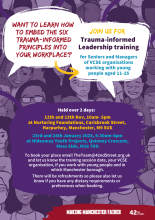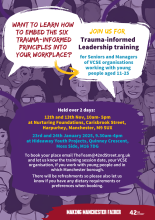Season 9 episode 5 of the Meet the Mancunian Podcast – Tackling food poverty with Tracey Torley
In the fifth episode of Season 9 of the Meet the Mancunian podcast, Deepa Thomas-Sutcliffe speaks to Tracey Torley, director of Cracking Good Food and a Spirit of Manchester award winner for community and business collaboration. Tracy discusses her journey into food advocacy, stemming from her West Indian heritage, and her impactful work with organisations aimed at alleviating food poverty and promoting sustainable cooking practices. Tracy also shares the operational challenges and successes of her initiatives, including kitchen kit redistribution and community cooking workshops.




